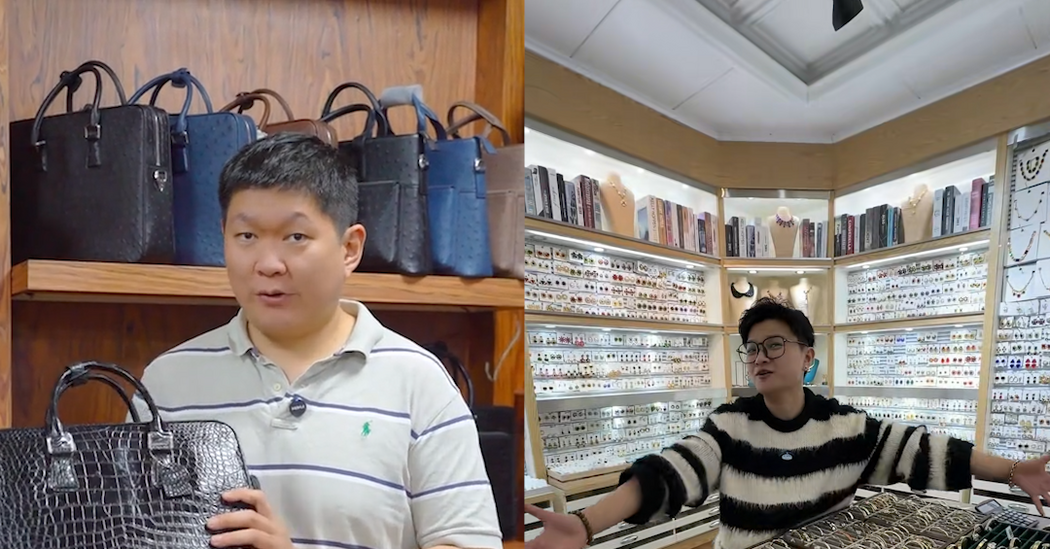Chinese Manufacturers Target American Shoppers Through Social Media
Emergence of Direct Sourcing Videos
Chinese manufacturers have begun to aggressively market luxury items through social media platforms like TikTok and Instagram, directly appealing to American consumers. These videos aim to promote the idea that shoppers can purchase products such as leggings and handbags similar to high-end brands like Lululemon, Hermes, and Birkenstock at significantly reduced prices. Many claims suggest these products are sourced from the same factories that produce for these luxury labels, although such assertions often lack substantiation.
The Role of American Influencers
American influencers have quickly adopted these promotional videos, encouraging their followers to explore Chinese shopping apps such as DHGate and Taobao. According to reports, DHGate recently became one of the most downloaded apps in both Apple and Google’s app stores, reflecting consumer interest in lower-cost alternatives amidst potential spikes in prices due to looming tariffs initiated by the Trump administration.
Social Media Dynamics
The popularity of these videos showcases a rare opportunity for Chinese manufacturers to communicate with American consumers through platforms that are otherwise restricted in China. This surge in content has cultivated a sense of solidarity among viewers, leading to supportive comments expressing admiration for China’s resilience in light of geopolitical tensions.
Analysis of Recent Trends
Recent data from analytics firm Graphika indicates that TikTok videos promoting sourcing directly from Chinese factories increased by approximately 250 percent as of mid-April. The hashtag #ChineseFactory had seen 29,500 posts on TikTok and 27,300 on Instagram by late April, highlighting a growing trend among consumers seeking to bypass traditional retailers.
Questions of Authenticity
Despite the excitement around these direct-to-consumer videos, experts suggest that many claims regarding the authenticity of the products are dubious. Analysts like Sucharita Kodali from Forrester emphasize that factories usually sign strict nondisclosure agreements with known brands, making it improbable that they would jeopardize those relationships for short-term sales.
The Chinese Government’s Role
Some analysts propose that the Chinese government might be tacitly encouraging this marketing trend, especially given the competitive pressures faced by businesses due to the tariffs. The emphasis appears to be on responding to market demand rather than protecting the interests of Western luxury brands.
Consumer Engagement and Reactions
Consumers like 23-year-old Elizabeth Henzie have engaged deeply with this trend, creating informational resources about manufacturers who claim to produce duplicates of high-end products. Henzie has shifted to working as an affiliate partner for DHGate, indicating a new wave of social media-driven commerce where individuals can benefit from direct sales.
Industry Responses
Brands like Hermes, Lululemon, and Birkenstock have actively distanced themselves from the counterfeit claims made in these videos, asserting their products are manufactured authentically in their own respective locations. Both Hermes and Birkenstock have reached out to TikTok to flag this misleading content, emphasizing the importance of consumer awareness.


